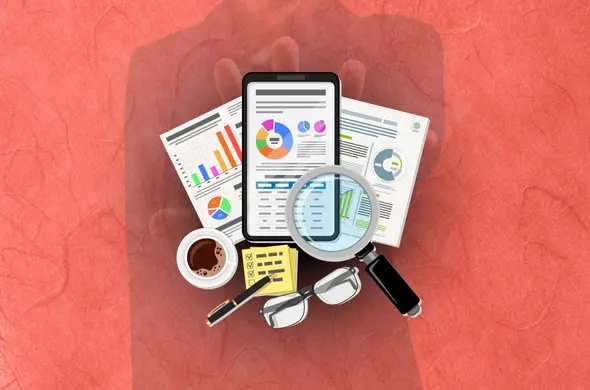Updated
May 7, 2021
Written by
Alyssa Maano
Everywhere we look, we see famous people from all walks of life, advertising products and services they have received from various companies.
A photo here, and another photo there, all portraying a strategic angle that shows one’s good side, a fun way to things up while doing an indoor activity, or how to wear branded clothes confidently. Some turn their back to the sun and hold the product they are advertising for added effect.
A series of pictures or a single social media post can influence a massive group of followers in a heartbeat. It can convince people to purchase a product or support a brand.
That is the power of an influencer.
Today, we will be tackling what is an influencer and if you are one of them, then you’d better read on to gain better insight on the important role that you play in today’s digital marketing scene.

As an influencer, have you ever heard the history behind your line of work?
One of the earliest records of influencer activity can be traced in Ancient Rome, and it involved gladiators. They trained men who fought fellow men or animals in the arena, while also advertising items to the people in the colosseum.
A more prominent mark on the timetable of influencer history dates back in 1760 when Wedgewood molded a tea set for the wife of King George III. This turned him into a household name for flatware with the seal of Royal approval that ensures luxurious items created by him. He literally had royalty to seal his credibility and influence more people to purchase his products.
Let’s spice things up and have a bit of Q and A.
We know you know who this next person is that created her name in the fashion world as an influencer, fashion designer, and businesswoman. She paved the way for sporty, casual chic as the new feminie style in contrast to the corseted silhouette that was the norm then.
Do you already have an idea on who she is?

Her name is Gabrielle Bonheur Coco Chanel. She is the founder of the Chanel brand that is well-known today in the fashion industry. If you are one who likes to follow trends and is very fashion-savvy, then you probably have at least a few pieces from her collection.
Coco emerged in the 20th century where the influencer market was just about to take its form. It was during the 1930s when the term really came into existence, and it was made even powerful today with the use of social media. Social media has expanded the breadth of what each influencer can reach. A single tap on the ‘post’ button is enough for them to show up on various users’ feed and attract more people to follow them.

By definition, an internet influencer is someone who amasses influence through the content they make. At times, the content they produce is also determined by what their audience wants to see from them. To scale, people who advertise products online and have a follower count above 100 may be considered an influencer.
Technically, being an influencer is not new. In fact, modern-day influencers have significantly boomed since the pandemic started. Around 3.2 million of the global social media population are currently recognized as influencers.
Below is a list of qualities of a social media influencer. Make sure to check which one you are and think carefully about how you would want to collaborate with companies, brands, and future projects from here on out.

Mega-followers: These are the people who have mostly gained fame offline, such as movie stars, musicians, athletes, and TV personalities. Their follower count goes up to over 1 million, and so they need staff to assist them in choosing their marketing relationships. However, choosing them for influencer marketing could leave small businesses penniless since one post could cost a whopping $1 million.
Macro-followers: This tier consists of people with around 40,000 to 1,000,000 followers, and are either B-class celebrities or online experts whose supporters consist of micro-followers. They are the best choice for influencer marketing. The only key detail that businesses need to watch out for is the authenticity of their followers. Some social media celebrities tend to buy followers and have not generated purely organic page traffic.
Micro-followers: These are the people who are specialists in their own respective niches and have a follower count of around 1,000 to 40,000. They can get picky when aligning with a brand, especially if it means that their fanbase would not want to see promotions on their page.
Nano-followers: Their follower count are less than 1,000 yet still get more engagements since their fan base interact and care more about what they have to say or share with each other.

Bloggers: People who love writing advertise products on their respective blog sites or pages. They are the people who have avid readers ready to try out the products or services that they feature or mention on their blog.
YouTubers: YouTubers (also called video bloggers or ‘vloggers’) are by far, one of the most popular types of influencers at present. They range from beauty vloggers, product and meme reviewers, live streamers, and even regular people who follow online challenges or do public pranks for their content.
For people who watch vloggers in their respective niches, you would mostly see influencer marketing in this platform through paid ads flashed before, during, or after the video itself.
Podcasters: Unlike vloggers or YouTubers, podcasters use digital audio which they stream live to discuss a specific topic or focus content. Their contents are divided into episodes. Think of it as akin to a modern day radio talk show.
For the avid listeners of niche specialists, they typically hear a short advertisement during the podcast itself. These are similar to the ads inserted in YouTube videos.
Social Posts Only: This is popular with podcasters and YouTubers since they would turn to other social media platforms to spread their content through posting about them or creating a variety of content relating to their respective line of expertise or specialty.

Celebrities: They are the OG influencers with huge fan bases that follow their every move. Whatever they use, eat, or wear as part of their lifestyle is on the internet and their fans would religiously follow them.
Key Opinion Leaders: These are individuals who are opinionated and give the people what they really think about specific topics, trending issues, or current events happening in their respective country or place of residence. Key Opinion Leaders include, but are not limited to, journalists, academics, industry experts, and professional advisors.
Above Average Audience: The people under this bracket are known to have garnered audience engagement through the help of on-trend online activities. YouTubers and Podcasters are among the most popular influencers who exemplify this category, and their work bears a close resemblance to that of key opinion leaders.
Now that you have a more in-depth background of what a social media influencer is, you can now identify more closely and accurately the kind of influencer you are. As such, you get to plan how to proceed in your chosen career and niche through assessing the audiences you attract and affect the most.
We know the struggles you have when it comes to managing your social media, especially when you have a steadily expanding audience while being consistently called to cater to what they want and executing all precautions to avoid tarnishing your brand.
That said, New Media Services offers the services of our social media virtual assistants to help you maintain and regulate your content, comment section, and follower authenticity to make your online community of supporters grow tremendously and help you become the best form of influencer you envision yourself to be.
Everywhere we look, we see famous people from all walks of life, advertising products and services they have received from various companies.
A photo here, and another photo there, all portraying a strategic angle that shows one’s good side, a fun way to things up while doing an indoor activity, or how to wear branded clothes confidently. Some turn their back to the sun and hold the product they are advertising for added effect.
A series of pictures or a single social media post can influence a massive group of followers in a heartbeat. It can convince people to purchase a product or support a brand.
That is the power of an influencer.
Today, we will be tackling what is an influencer and if you are one of them, then you’d better read on to gain better insight on the important role that you play in today’s digital marketing scene.

As an influencer, have you ever heard the history behind your line of work?
One of the earliest records of influencer activity can be traced in Ancient Rome, and it involved gladiators. They trained men who fought fellow men or animals in the arena, while also advertising items to the people in the colosseum.
A more prominent mark on the timetable of influencer history dates back in 1760 when Wedgewood molded a tea set for the wife of King George III. This turned him into a household name for flatware with the seal of Royal approval that ensures luxurious items created by him. He literally had royalty to seal his credibility and influence more people to purchase his products.
Let’s spice things up and have a bit of Q and A.
We know you know who this next person is that created her name in the fashion world as an influencer, fashion designer, and businesswoman. She paved the way for sporty, casual chic as the new feminie style in contrast to the corseted silhouette that was the norm then.
Do you already have an idea on who she is?

Her name is Gabrielle Bonheur Coco Chanel. She is the founder of the Chanel brand that is well-known today in the fashion industry. If you are one who likes to follow trends and is very fashion-savvy, then you probably have at least a few pieces from her collection.
Coco emerged in the 20th century where the influencer market was just about to take its form. It was during the 1930s when the term really came into existence, and it was made even powerful today with the use of social media. Social media has expanded the breadth of what each influencer can reach. A single tap on the ‘post’ button is enough for them to show up on various users’ feed and attract more people to follow them.

By definition, an internet influencer is someone who amasses influence through the content they make. At times, the content they produce is also determined by what their audience wants to see from them. To scale, people who advertise products online and have a follower count above 100 may be considered an influencer.
Technically, being an influencer is not new. In fact, modern-day influencers have significantly boomed since the pandemic started. Around 3.2 million of the global social media population are currently recognized as influencers.
Below is a list of qualities of a social media influencer. Make sure to check which one you are and think carefully about how you would want to collaborate with companies, brands, and future projects from here on out.

Mega-followers: These are the people who have mostly gained fame offline, such as movie stars, musicians, athletes, and TV personalities. Their follower count goes up to over 1 million, and so they need staff to assist them in choosing their marketing relationships. However, choosing them for influencer marketing could leave small businesses penniless since one post could cost a whopping $1 million.
Macro-followers: This tier consists of people with around 40,000 to 1,000,000 followers, and are either B-class celebrities or online experts whose supporters consist of micro-followers. They are the best choice for influencer marketing. The only key detail that businesses need to watch out for is the authenticity of their followers. Some social media celebrities tend to buy followers and have not generated purely organic page traffic.
Micro-followers: These are the people who are specialists in their own respective niches and have a follower count of around 1,000 to 40,000. They can get picky when aligning with a brand, especially if it means that their fanbase would not want to see promotions on their page.
Nano-followers: Their follower count are less than 1,000 yet still get more engagements since their fan base interact and care more about what they have to say or share with each other.

Bloggers: People who love writing advertise products on their respective blog sites or pages. They are the people who have avid readers ready to try out the products or services that they feature or mention on their blog.
YouTubers: YouTubers (also called video bloggers or ‘vloggers’) are by far, one of the most popular types of influencers at present. They range from beauty vloggers, product and meme reviewers, live streamers, and even regular people who follow online challenges or do public pranks for their content.
For people who watch vloggers in their respective niches, you would mostly see influencer marketing in this platform through paid ads flashed before, during, or after the video itself.
Podcasters: Unlike vloggers or YouTubers, podcasters use digital audio which they stream live to discuss a specific topic or focus content. Their contents are divided into episodes. Think of it as akin to a modern day radio talk show.
For the avid listeners of niche specialists, they typically hear a short advertisement during the podcast itself. These are similar to the ads inserted in YouTube videos.
Social Posts Only: This is popular with podcasters and YouTubers since they would turn to other social media platforms to spread their content through posting about them or creating a variety of content relating to their respective line of expertise or specialty.

Celebrities: They are the OG influencers with huge fan bases that follow their every move. Whatever they use, eat, or wear as part of their lifestyle is on the internet and their fans would religiously follow them.
Key Opinion Leaders: These are individuals who are opinionated and give the people what they really think about specific topics, trending issues, or current events happening in their respective country or place of residence. Key Opinion Leaders include, but are not limited to, journalists, academics, industry experts, and professional advisors.
Above Average Audience: The people under this bracket are known to have garnered audience engagement through the help of on-trend online activities. YouTubers and Podcasters are among the most popular influencers who exemplify this category, and their work bears a close resemblance to that of key opinion leaders.
Now that you have a more in-depth background of what a social media influencer is, you can now identify more closely and accurately the kind of influencer you are. As such, you get to plan how to proceed in your chosen career and niche through assessing the audiences you attract and affect the most.
We know the struggles you have when it comes to managing your social media, especially when you have a steadily expanding audience while being consistently called to cater to what they want and executing all precautions to avoid tarnishing your brand.
That said, New Media Services offers the services of our social media virtual assistants to help you maintain and regulate your content, comment section, and follower authenticity to make your online community of supporters grow tremendously and help you become the best form of influencer you envision yourself to be.
Help us devise custom-fit solutions specifically for your business needs and objectives! We help strengthen the grey areas on your customer support and content moderation practices.
Main Office
1710/35 Spring Street, Melbourne, VIC 3000 Australia
Other Offices
Melbourne
Texas
Manila
Zurich
Amsterdam
Dnipro
Email Us
A good company is comprised of good employees. NMS-AU encourages our workforce regardless of rank or tenure to give constructive ideas for operations improvement, workplace morale and business development.




